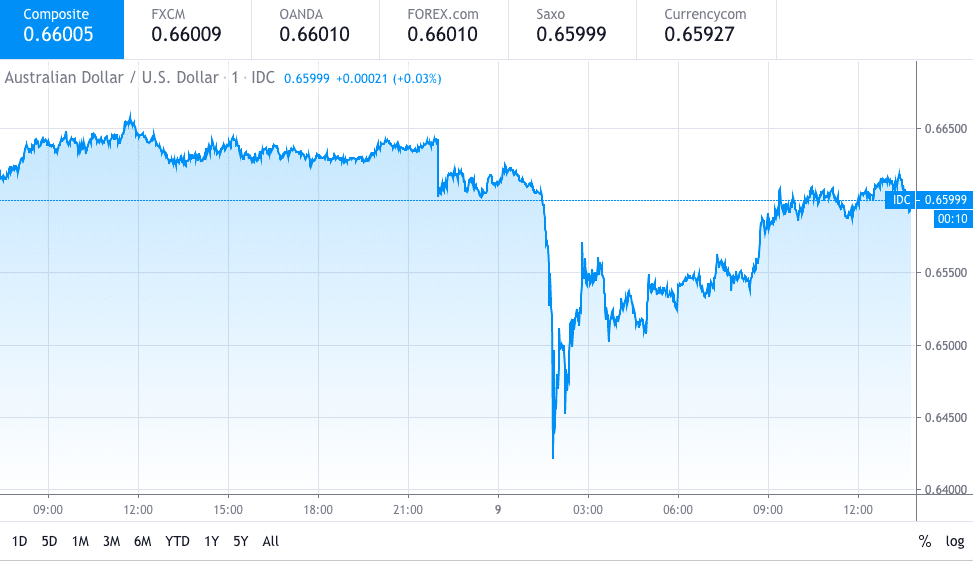It might only be Monday, but it’s already been a busy day on the foreign exchange (forex) markets, with some dubbing the day as “Black Monday” as a slew of market events have sent currencies surging and plummeting.
Coronavirus, US Treasury yields and oil prices all contributed to today’s events with commodity-linked currencies, such as the Australian dollar (AUD), New Zealand dollar (NZD) and the Canadian dollar (CAD) all posting sharp declines in the early morning hours.


NOK and CAD were Black Monday losers

Source: LinkedIn
“It also seems that the common currency was used as a vehicle in carry trades, and thus, now investors are unwinding such trades, it gets benefited. In other words, it wore its safe haven suit. Among the EM currencies, the currency that felt the heat the most was of course the Russian Ruble.
“With regards to the coronavirus sequel, although infected cases slowed somewhat on Sunday, deaths accelerated sharply, while the Italian government ordered a lockdown of large parts of the north of the country, including Milan. The market reaction suggests that investors are unconvinced that the virus can been contained soon, something that heightened further recession fears.”
A perfect FX storm
“Financial markets have suffered a rude awakening to notions that volatility was a thing of the past. We’re now seeing the kind of market dislocation not witnessed since the 2008-09 global financial crisis,” ING analysts said this Monday.
The article, written by Chris Turner, Global Head of Markets and Regional Head of Research for UK & CEE, described the set-up as a “perfect storm” for currency markets. “This all conspires to deliver an extreme flight to safety, into the likes of the JPY and the CHF.”
What does all of this mean for brokers?
Large swings in the price of major currencies can be problematic for brokers and traders alike. Back in June of 2016, following the big vote, many brokers struggled to meet their customers’ demand as there was a squeeze on liquidity.
Flash crash events can cause financial harm to forex brokers. Historically, these types of situations have led to clients receiving margin calls and having positions closed out at a negative balance.
Furthermore, large changes in major currencies can cause , as was the case when the Swiss National Bank loosened its grip of the Swiss franc (CHF) back in 2015 and removed its peg against the Euro.
Looking at past events
Let’s take a look at the damage that the flash crash on the first trading day of 2019 did to Japanese brokers. On the 3rd of January 2019, there was a , which sent the JPY, along with other currencies plummeting.
As , following this event, just like after the SNB many brokers couldn’t chase their clients for the losses on their books, therefore, the January flash crash ultimately affected the companies too.
The magnitude of the event was not as pronounced as the in January 2015. Nevertheless, the total losses suffered by Japanese STP brokers on the first trading day in Tokyo of 2019 totalled to about $8.6 million.
Speaking to Finance Magnates on today’s trading activity, Christos Yerasimou, Director of Trading at Skilling, a European broker, explained: “Other than the US indices global trading halt, we have not experienced any other issues. On the contrary, our pricing and execution engine is responding to the market events pretty well.”
When asked whether the broker had seen a change in trading activity, Yerasimou responded with: “We have seen a surge in commodities trading, mainly Gold and Oil. This heavy increase was also probably supported by the fact that US indices trading was halted globally due to the breach of their circuit breaker levels.
“I would say EURUSD was the most traded pair today; but, as I mentioned before, the clients’ interest is primarily focusing on the commodities and non-US indices today.”





Be First to Comment